Gallery
Photos from events, contest for the best costume, videos from master classes.
 |  |
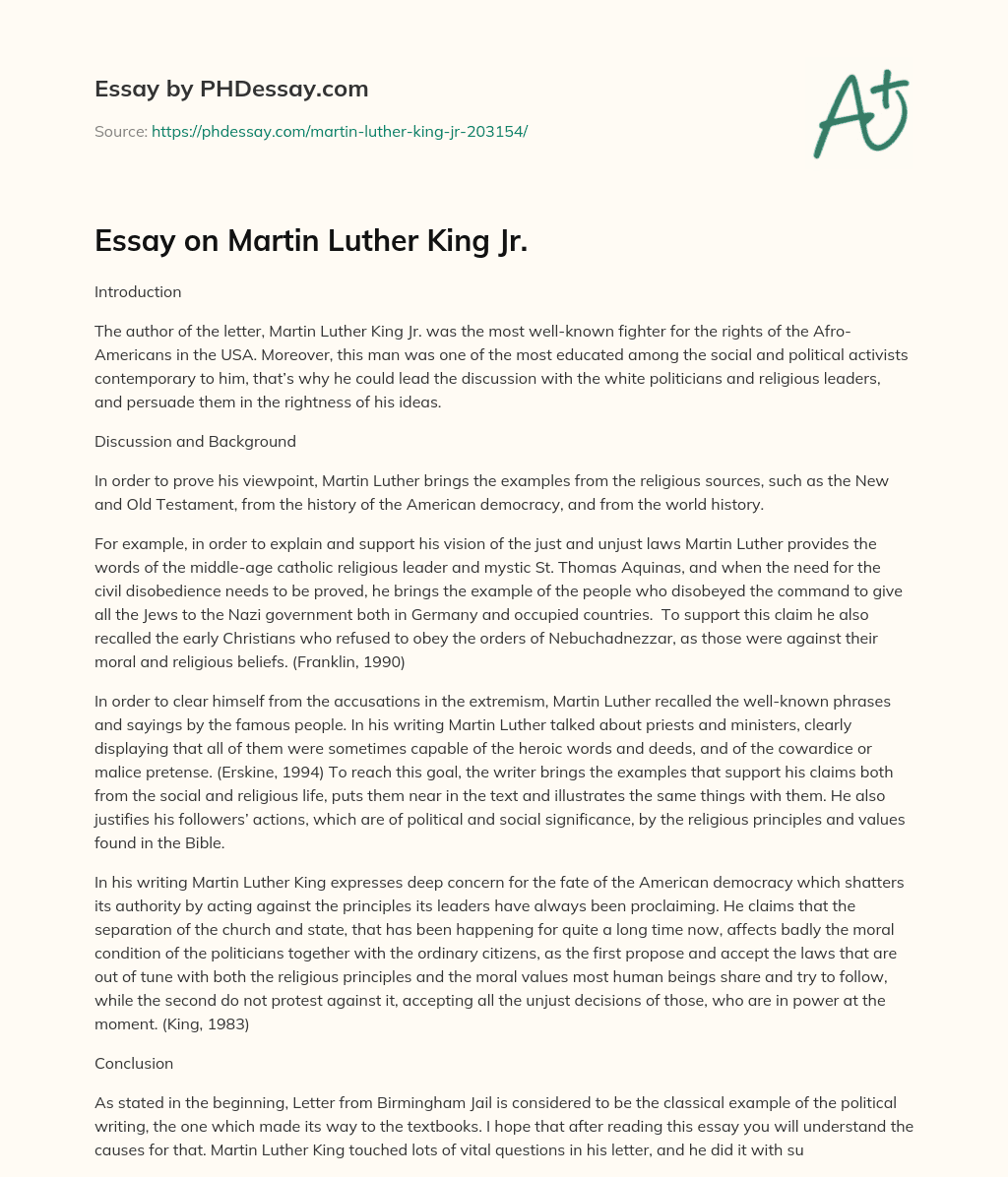 | 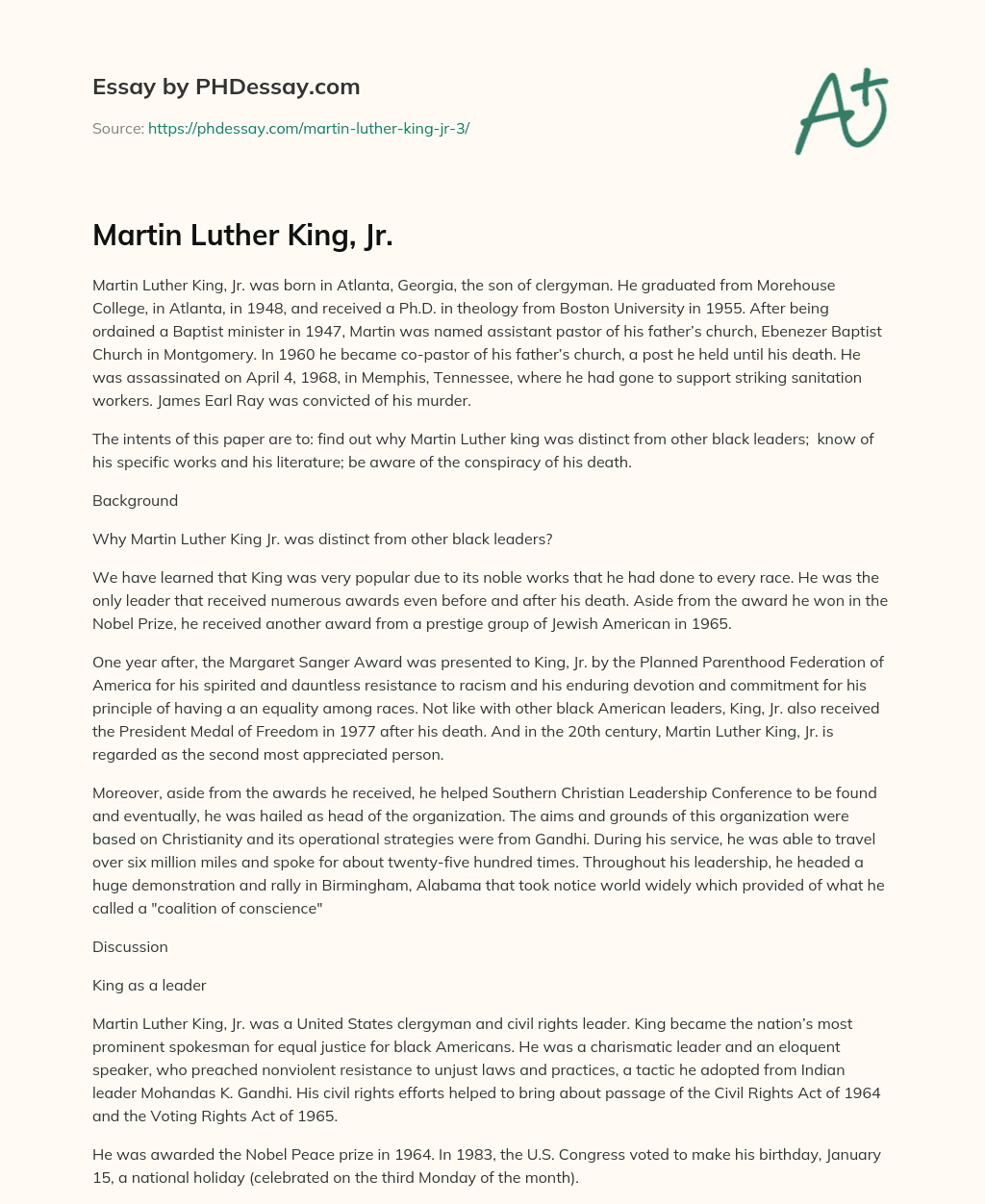 |
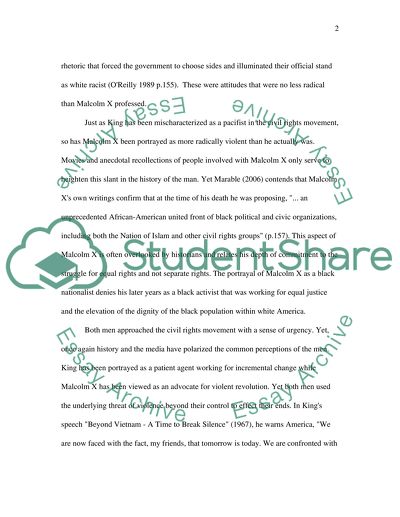 | 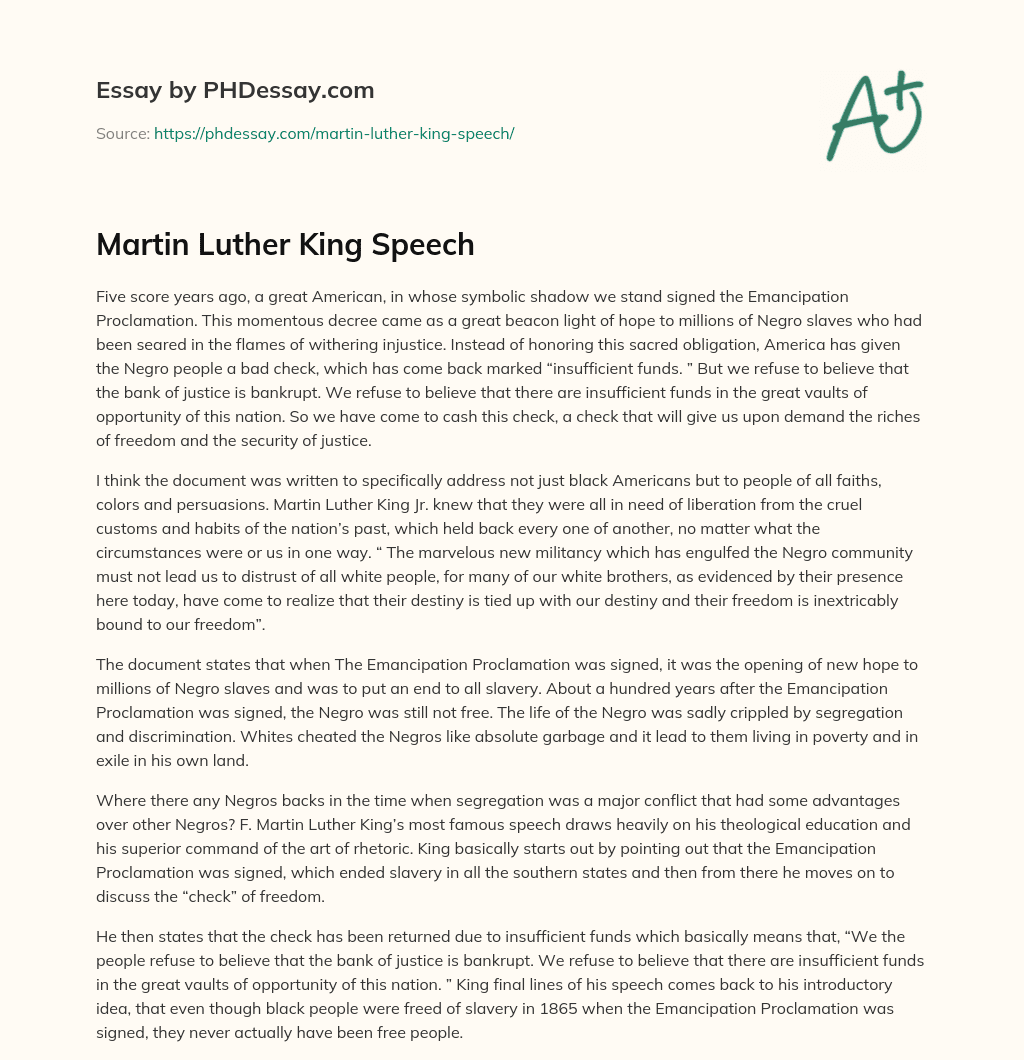 |
 |  |
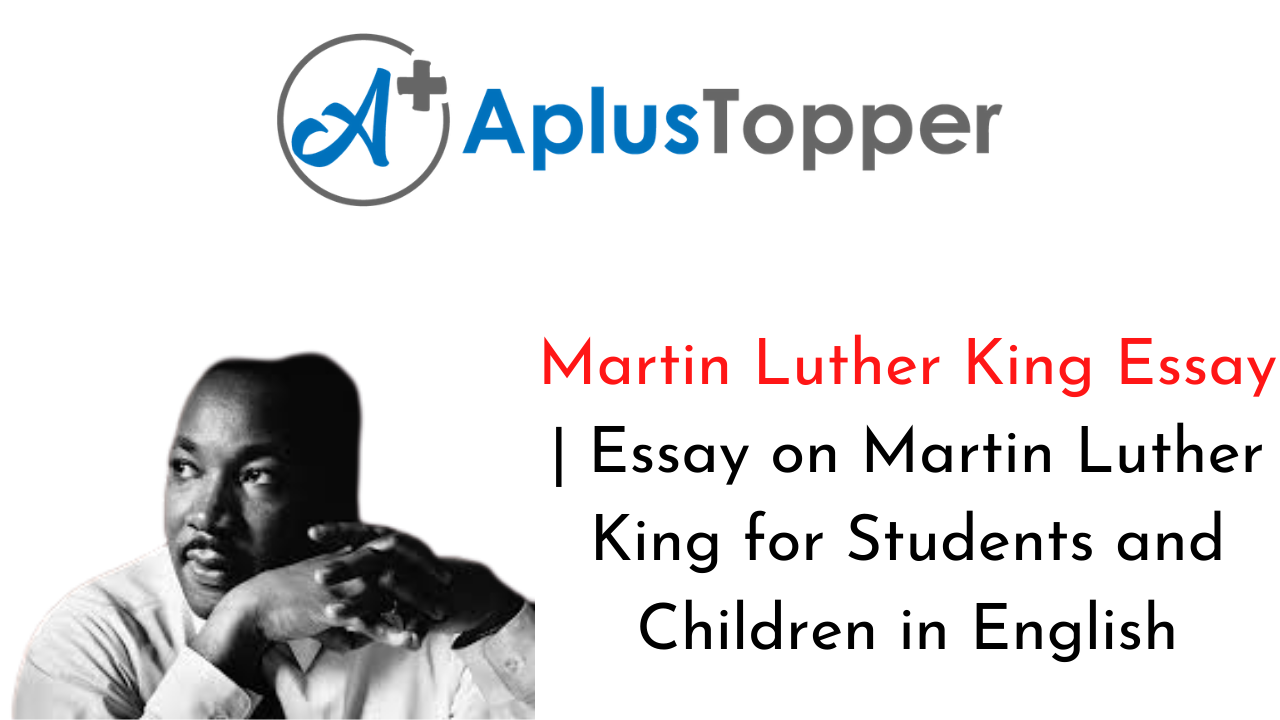 | 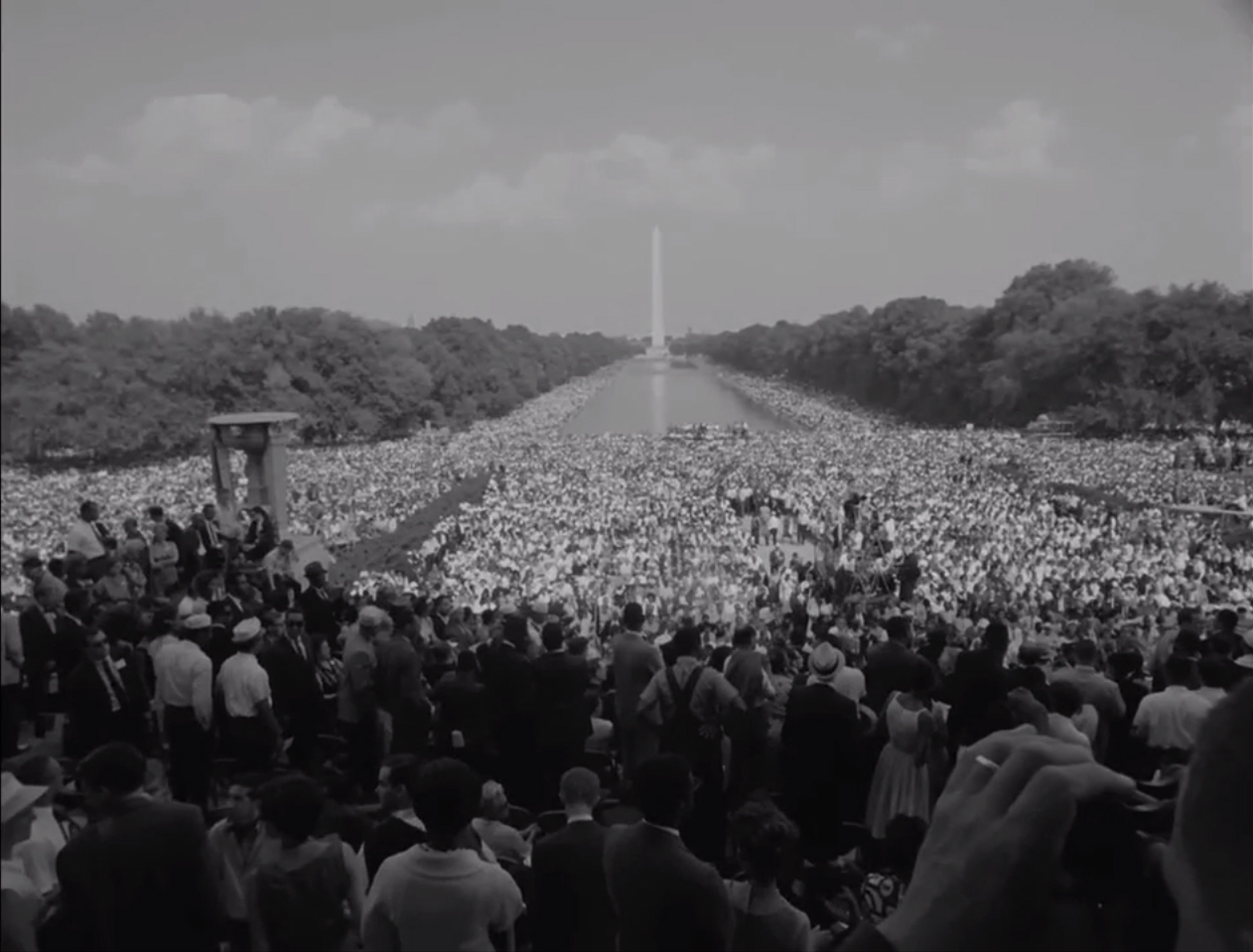 |
 | 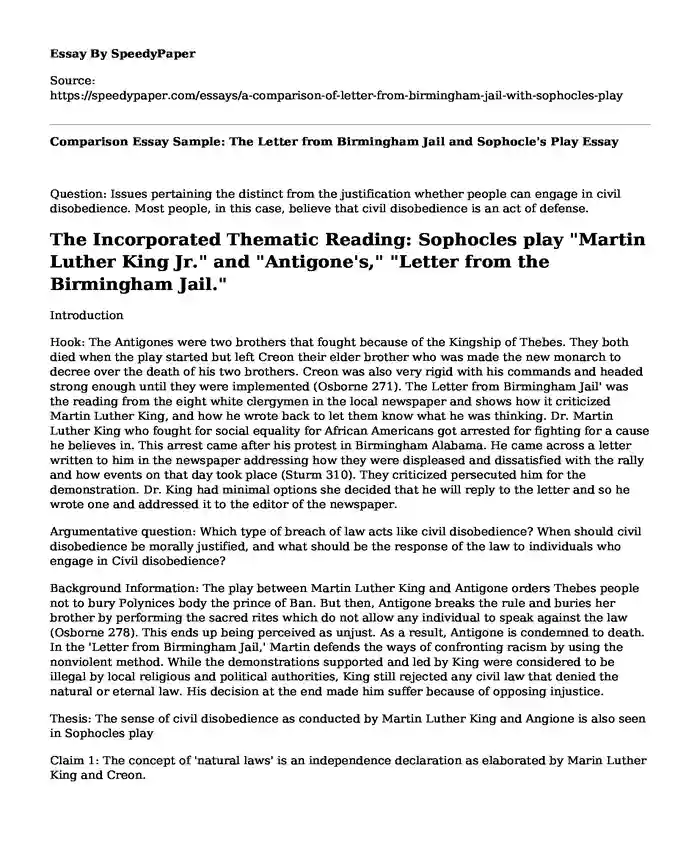 |
Learn about the life, work and legacy of Martin Luther King Jr., the civil rights leader and Nobel Peace Prize winner. Read a 500-word essay on his achievements, speeches, protests and death. Martin Luther King Jr., lead a civil rights movement in a tumultuous time that focused on nonviolent protests. No matter how many times the man was attacked in public or his house was bombed, King was firm on his believes of non-violence as a means to an end. This essay delves into the life, accomplishments, and enduring legacy of one of the most influential figures in American history, Martin Luther King Jr. Born on January 15, 1929, in Atlanta, Georgia, King emerged as a seminal figure in the American Civil Rights Movement. Martin Luther King Jr Essay Outline Introduction. Introduction to Martin Luther King Jr.'s life, significance, and the enduring relevance of racial equality; Early Life and Childhood. Background information on Martin Luther King Jr.'s family and upbringing; Early experiences with racism and segregation; Struggles and Influences In the tapestry of American history, few figures shine as brightly as Dr. Martin Luther King Jr. His unwavering commitment to justice, equality, and nonviolence transformed the landscape of civil rights in the United States. Writing essays on Martin Luther King. When writing an essay about Martin Luther King Jr., there are several important themes, topics, and points to consider. Here are some key ideas to keep in mind: Nonviolence: One of the defining characteristics of King’s activism was his commitment to nonviolence. He believed that peaceful protest and Martin Luther King Essay: Martin Luther King Jr. was one of the pioneers who fought for the black people’s civil rights movement in America. He was a national figure and a brilliant orator who knew what to say to make any person understand his heart. This essay explores the life and enduring legacy of Martin Luther King Jr. and delves into his profound impact on the civil rights movement and contemporary issues, including the Black Lives Matter movement and the fight for LGBTQ+ rights. This essay will explore key aspects of Martin Luther King’s life, his influential campaigns, and the enduring legacy that continues to shape the pursuit of civil rights and equality in contemporary society. Martin Luther King Jr. was an iconic civil rights leader who made a lasting impact on the history of the United States. He is remembered for his peaceful protests and marches against racial discrimination in America, as well as his powerful speeches, which highlighted the importance of equality and justice for all. Martin Luther King, Jr., made history, but he was also transformed by his deep family roots in the African-American Baptist church, his formative experiences in his hometown of Atlanta, his theological studies, his varied models of religious and political leadership, and his extensive network of contacts in the peace and social justice movements of his time. Please contact Intellectual Properties Management (IPM), the exclusive licensor of the Estate of Martin Luther King, Jr., Inc. at licensing@i-p-m.com or 404 526-8968. Screenshots are considered by the King Estate a violation of this notice. Martin Luther King Jr. was born on January 15, 1929, in Atlanta Georgia as Michael King Jr., but changed his name to Martin Luther King Jr. in honor of Protestant Martin Luther. Through his activism, King played a pivotal role in ending the legal discrimination of African American citizens. Martin Luther King, Jr. (born January 15, 1929, Atlanta, Georgia, U.S.—died April 4, 1968, Memphis, Tennessee) was a Baptist minister and social activist who led The Martin Luther King, Jr. Papers Project has made the writings and spoken words of one of the twentieth century's most influential figures widely available through the publication of The Papers of Martin Luther King, Jr., a projected fourteen-volume edition of King's most historically significant speeches, sermons, correspondence, published writings, and unpublished manuscripts. January 25, 1967: Letter from Dr. Martin Luther King, Jr. nominating Thich Nhat Hanh for the Nobel Peace Prize in 1967. April 4, 1967: Beyond Vietnam. Audio. April 9, 1967: The Three Dimensions of a Complete Life. Audio. April 14, 1967: The Other America. Video. August 27, 1967: Why Jesus Called a Man a Fool. Audio. Martin Luther King Jr. was an American Baptist minister and a civil rights defender who rose to fame in 1955. In his iconic “I have a dream” speech, he talked about civil and economic rights for people of color in the US. Martin Luther King’s Speech: Essay Conclusion There was an established racial discrimination that is why he sent such a strong message to the white. More importantly is the fact that his words were advocating for peace hence providing the vision that anyone would buy it. Topic: Martin Luther King, Jr. - Education Martin Luther King, Jr. - Political and Social Views. Details. On 13 April 1944, in his junior year at Atlanta’s Booker T. Washington High School, King, Jr., won an oratorical contest sponsored by the black Elks. Initiated by The King Center in Atlanta, the Martin Luther King, Jr. Papers Project is one of only a few large-scale research ventures focusing on an African American. In 1985, King Center's founder and president Coretta Scott King invited Stanford University historian Clayborne Carson to become the Project's director. Mission of the Papers Project
Articles and news, personal stories, interviews with experts.
Photos from events, contest for the best costume, videos from master classes.
 |  |
 |  |
 |  |
 |  |
 |  |
 |  |